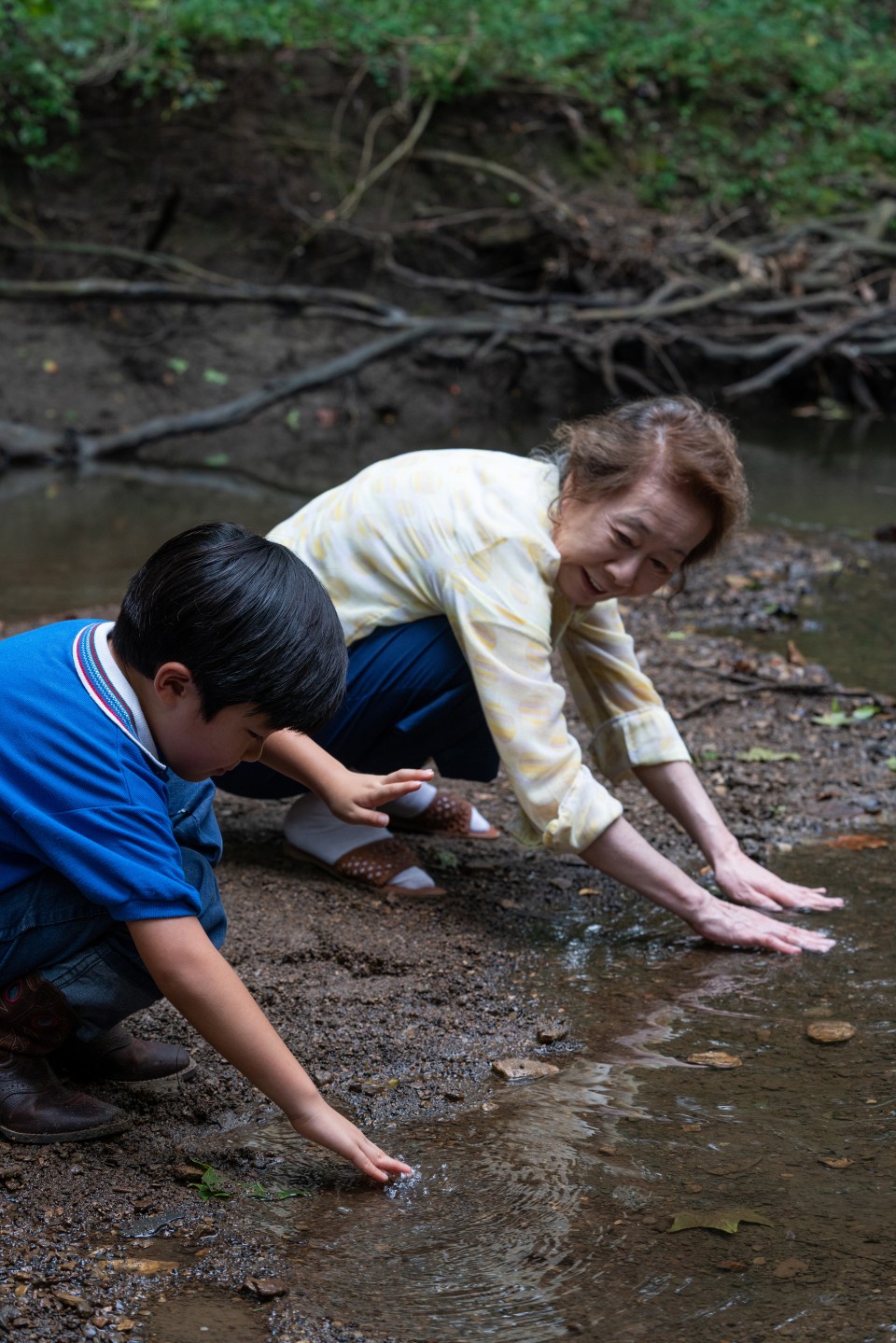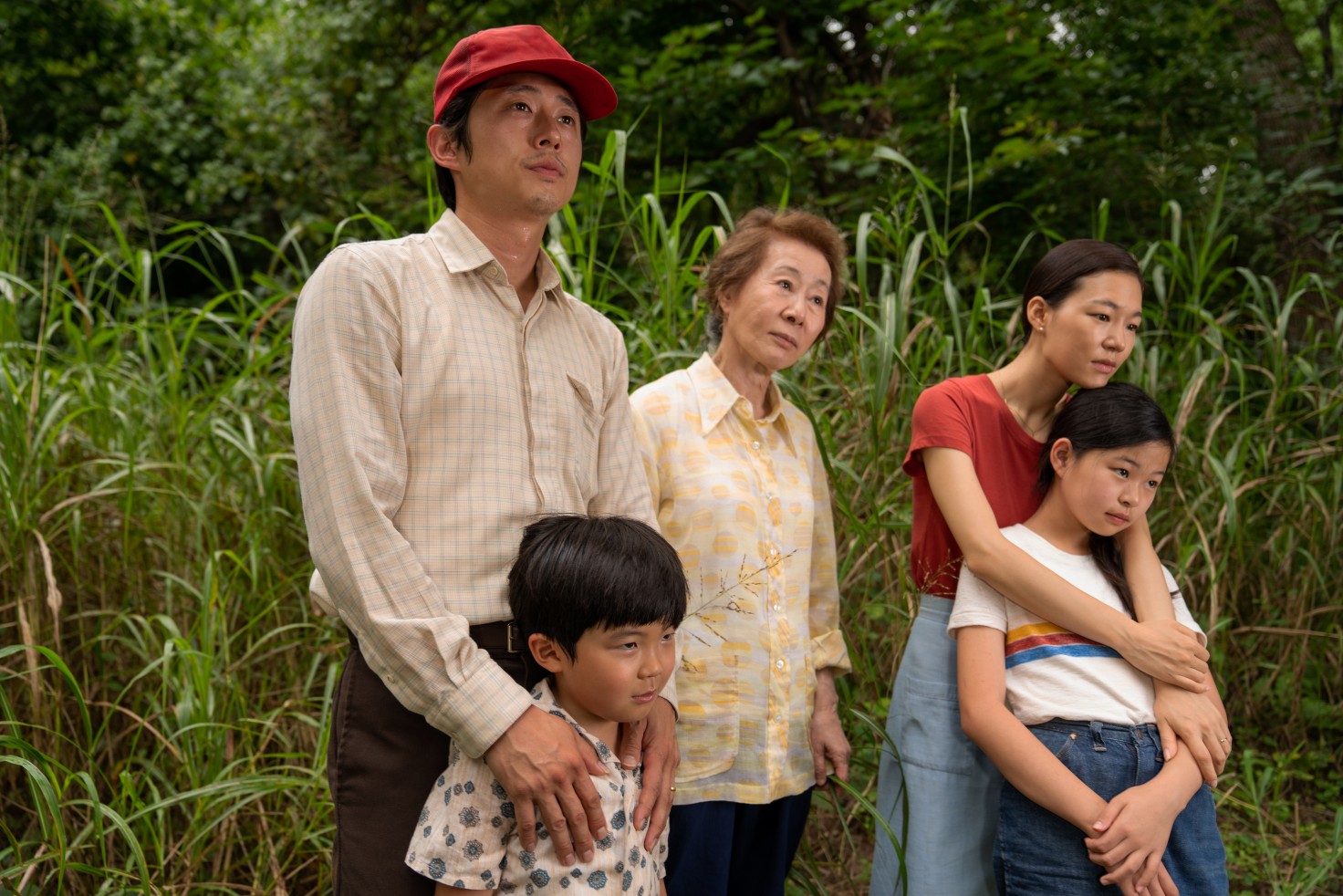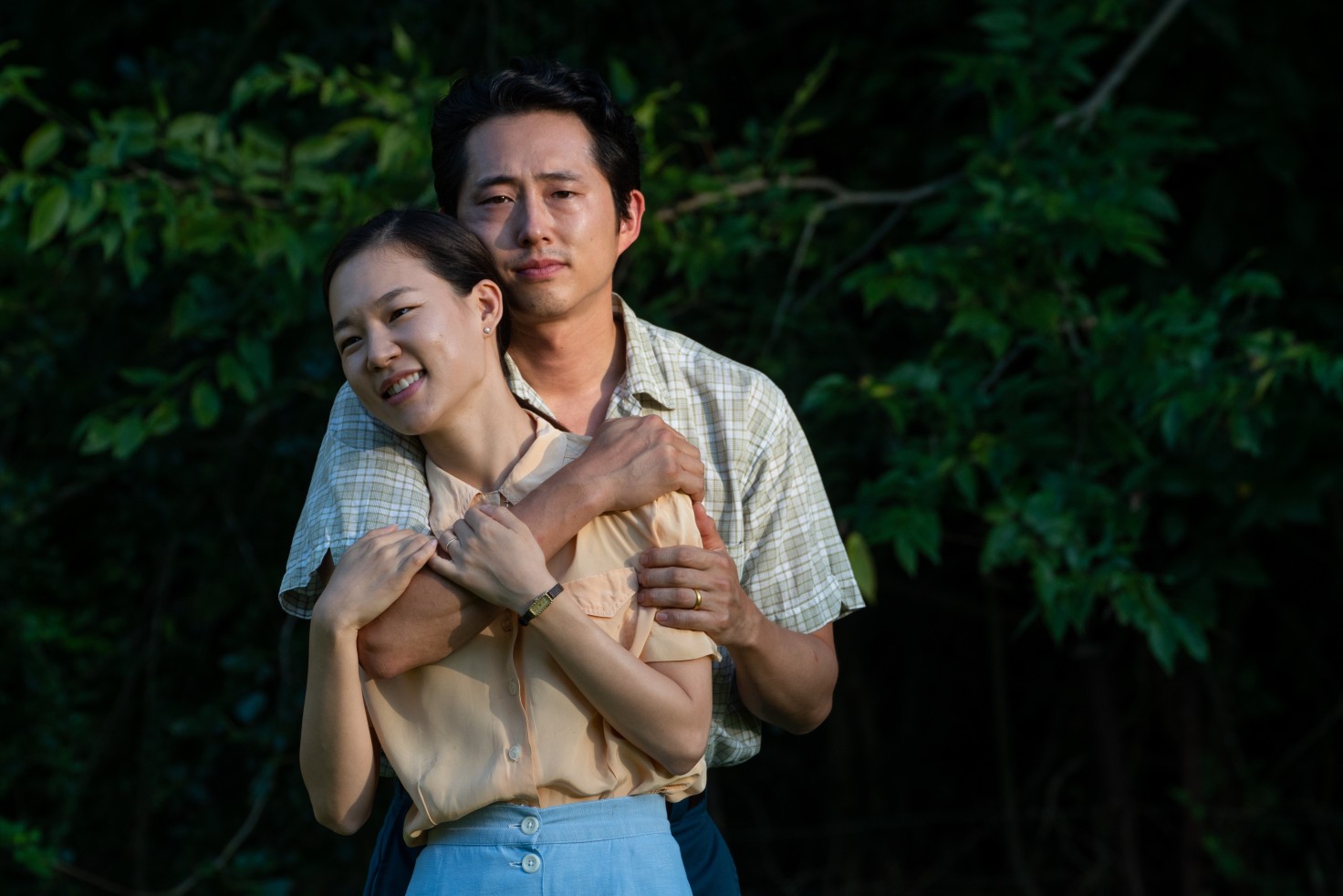[T]he reality for the Yis is that this dream is a rental, one that doesn’t fit the shape of their collective needs.
Chung—and the Yis—already know this about life in America. And the film reminds us of this lived reality when the Yis arrive at a church service about halfway through the film. A series of vignettes reveal racially fraught exchanges with the locals: David makes friends with one of the white boys, whose first words to him are, “Why is your face so flat?” Meanwhile, Anne patiently responds to a young white girl spewing racist gibberish who hopes to inadvertently utter a word of Korean. These moments are distinctly unremarkable, framed mostly in medium-wide shots using a long-focus lens that evoke a politely distanced observational aesthetic, in lieu of the conventional close-ups and quick cuts often used to depict interpersonal conflict. Chung deploys this careful visual grammar to capture many of the daily horrors that bubble and blister throughout the film.


